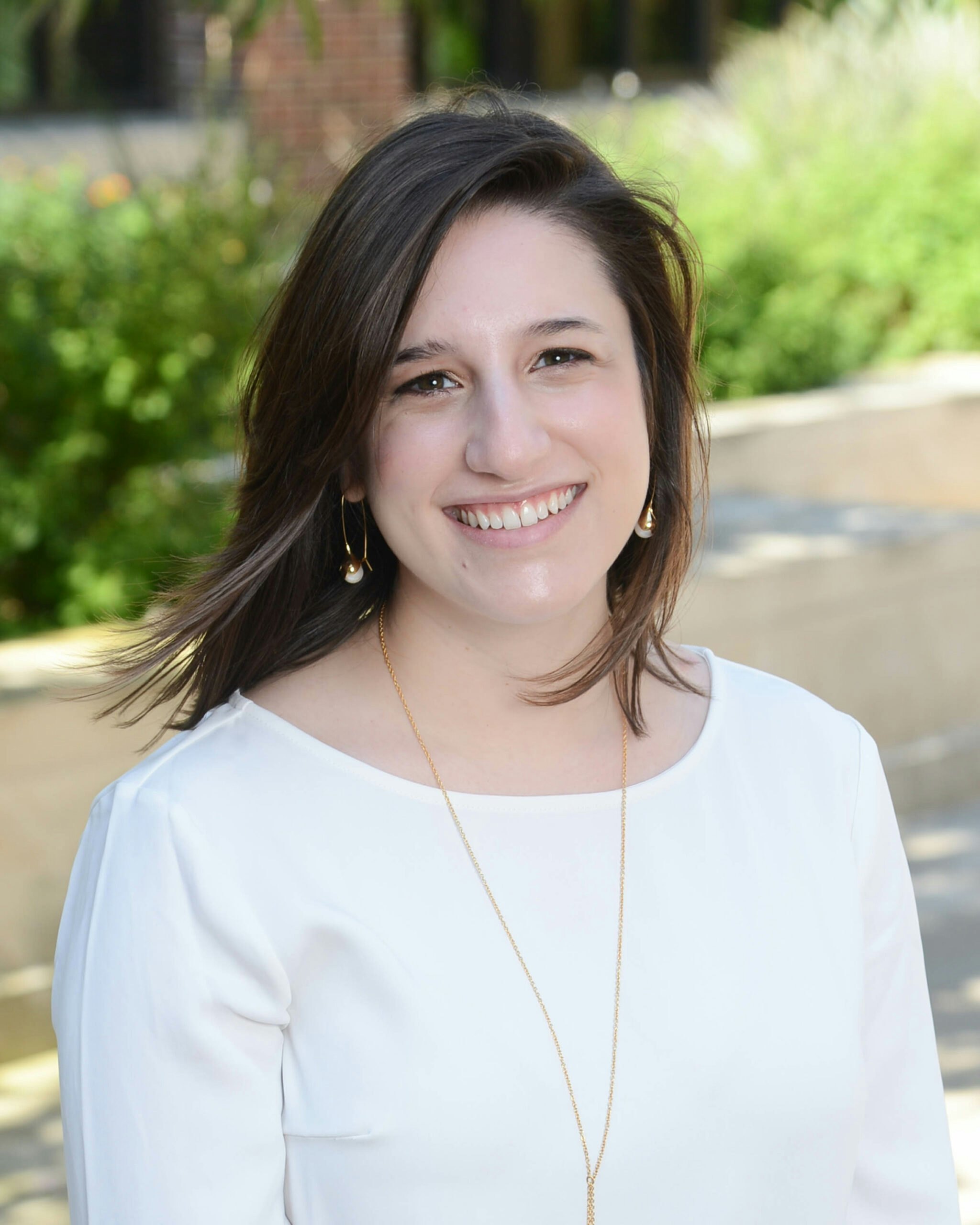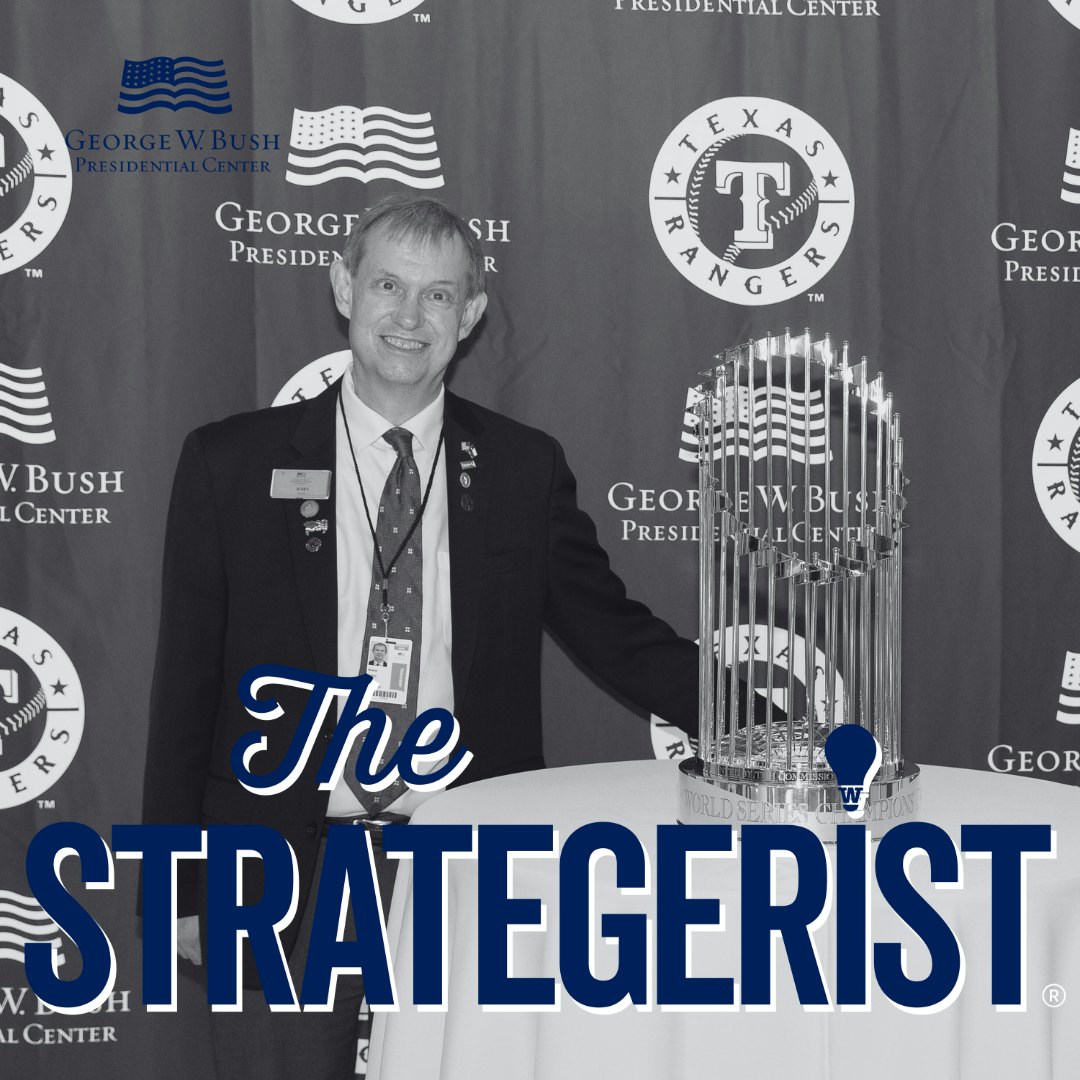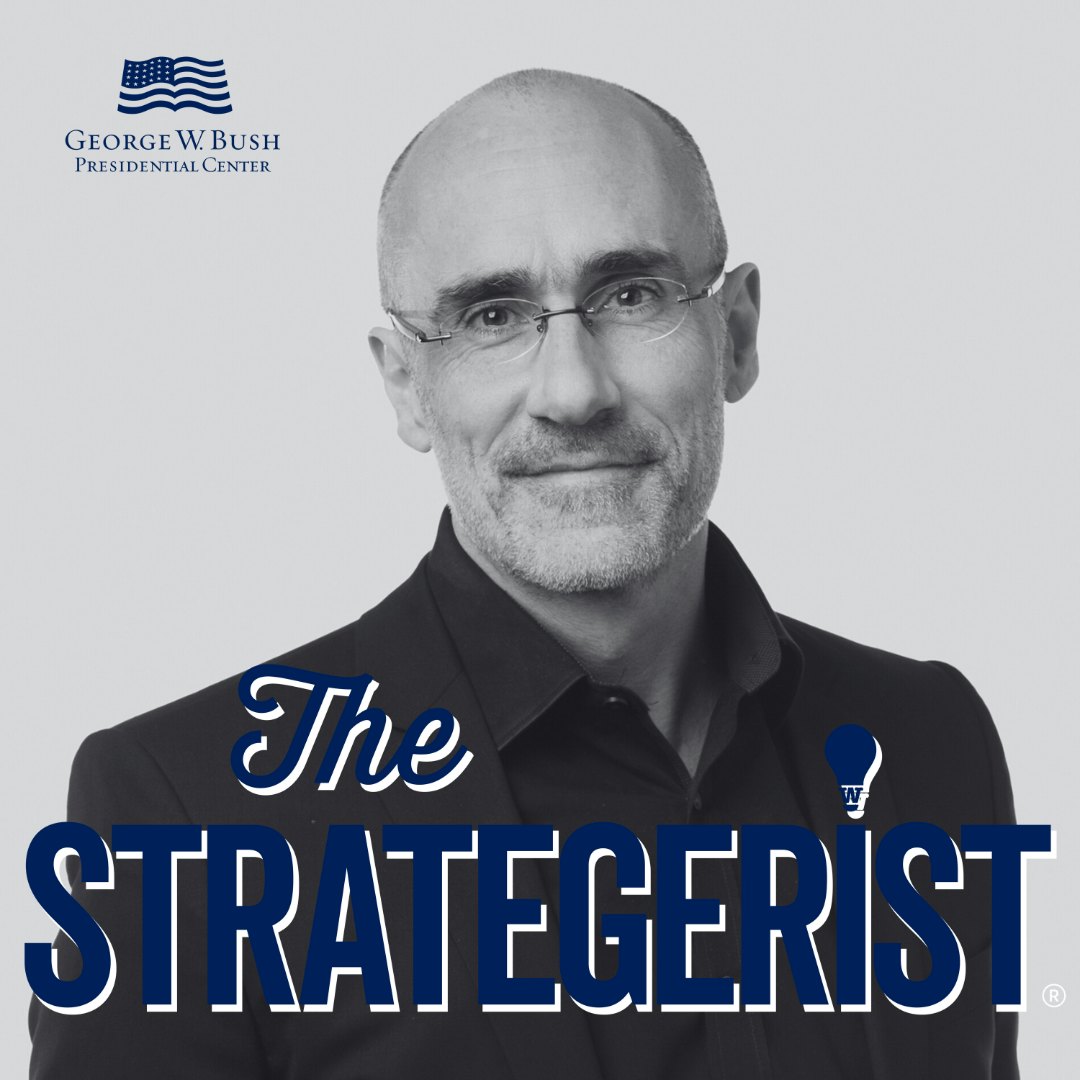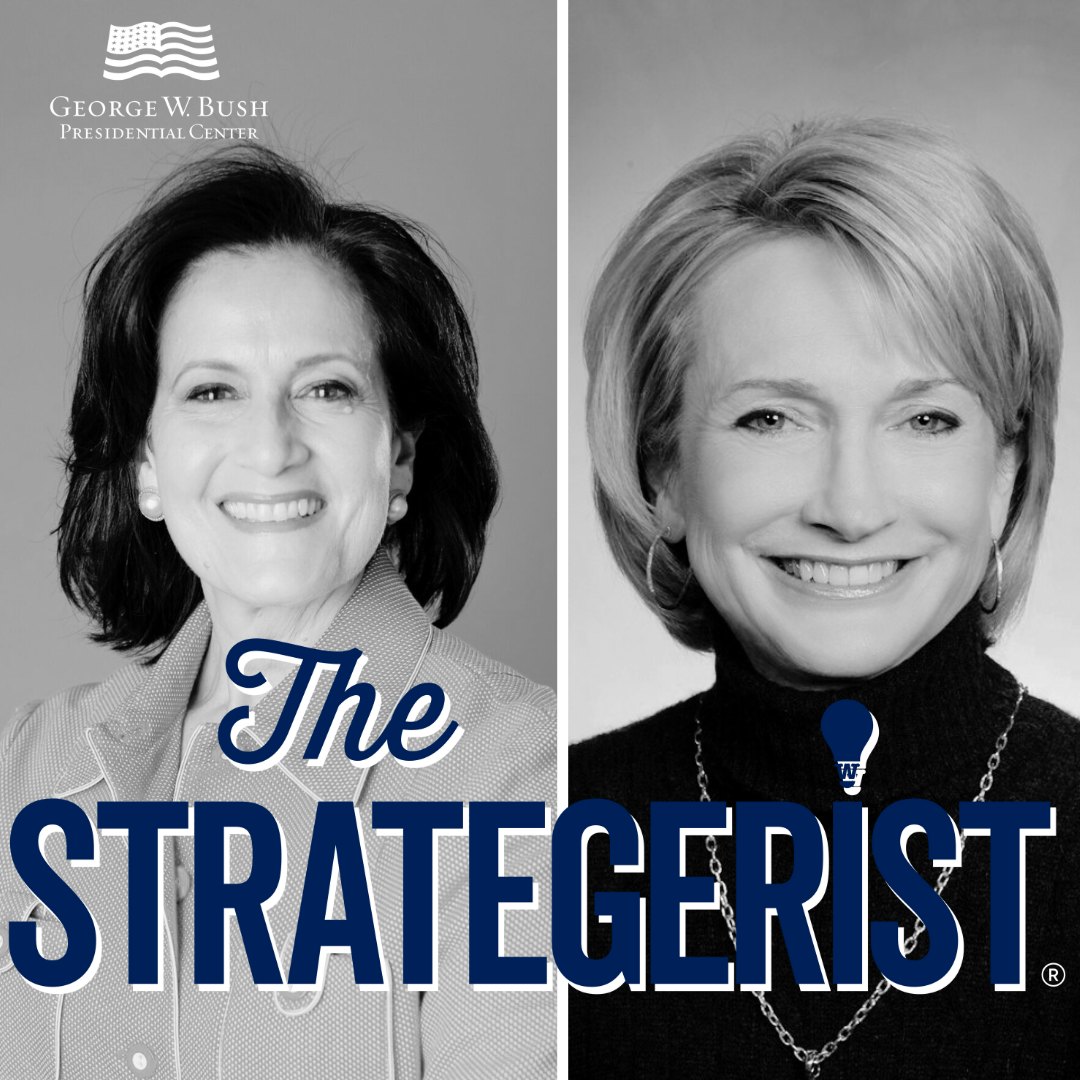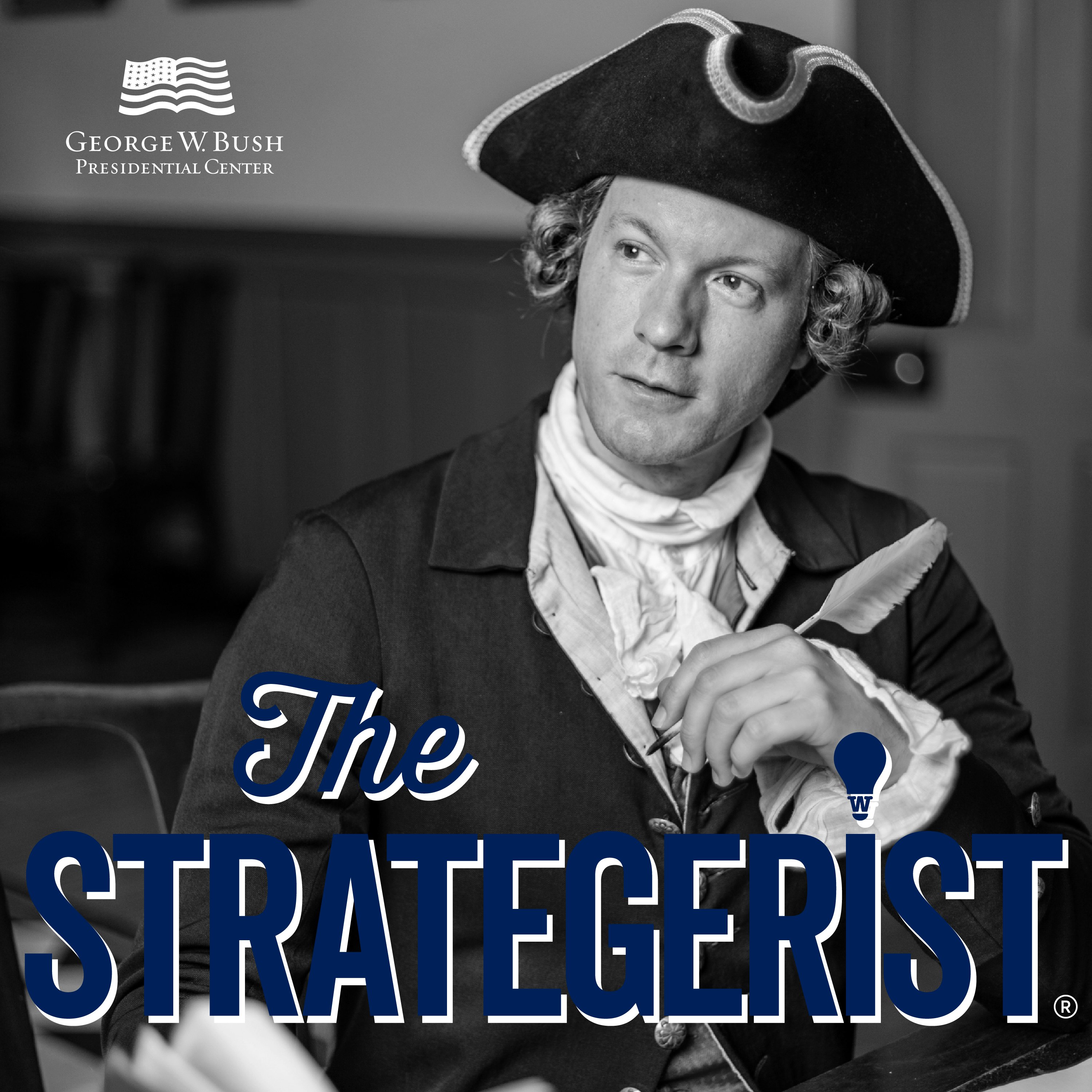Societies are stronger when women have access to the tools and financial resources they need. Bank of America's Anne Finucane is working to move the world toward that goal.
The Bush Institute firmly believes that societies around the world are stronger when women have access to the tools and resources they need. Women build stronger communities and drive us toward a more peaceful world. Bank of America’s Anne Finucane is a leader that is helping move the world toward that goal.
-
- The Bush Institute WE Lead program equips women from the Middle East, North Africa, and Afghanistan with the skills to become more effective leaders.
-
- The Bush Institute Women’s Initiative promotes education, healthcare, and economic opportunity for women around the world
-
- Read stories from remarkable Afghan women in We Are Afghan Women: Voices of Hope
Read the episode transcript
Transcript
00:02 Andrew Kaufmann: The Bush Institute firmly believes that societies around the world are stronger when women have access to the tools and resources they need. Women build stronger communities and drive us toward a more peaceful world. Bank of America’s Anne Finucane is a leader that is helping move the world toward that goal.
00:18 Anne Finucane: I think that you are seeing big businesses, particularly recognize from the CEO down, that we have to do more for our women.
00:28 AK: In this episode recorded live at the Bush Institute’s Forum on Leadership, we’ll talk about the huge role that women play in economies worldwide and how businesses and non-profits alike can help grow that impact. I’m Andrew Kaufmann and this is the Strategerist presented by the George W. Bush Institute.
[music]
00:49 AK: What happens when you cross the 43rd President, late night sketch comedy, and compelling conversation? The Strategerist, a podcast born from the word strategery, which was coined by SNL and embraced by the George W. Bush administration. We highlight the American spirit of leadership and compassion through thought-provoking conversations, and we’re reminded that the most effective leaders are the ones who laugh. Alright, well our guest now on The Strategerist is a regular on the Forbes and Fortune Most Powerful Women list and is a member of the Advertising Hall of Fame. Anne Finucane is vice chairman at Bank of America and chairman of the board of Bank of America Merrill Lynch Europe. More importantly, she’s a passionate member of the community. Thank you so much for joining us, Ms. Finucane.
01:32 AF: Thank you, Andrew.
01:34 AK: And also joining us as our co-host is Natalie Gonnella-Platts, the director of the Women’s Initiative at the George W. Bush Institute. Natalie, thank you so much.
01:40 Natalie Gonnella-Platts: Thrilled to be here.
01:41 AK: So, we were obviously reading up on you a little bit before you came on and came across this quote in American Banker that said, “Anyone interested in learning how to command the room would do well to observe Anne Finucane’s steely gaze and measured cadence of speech.” Can you tell us about your career journey and what shaped you into that leader?
02:00 AF: By the way, I think that’s probably because I often didn’t know what to say.
[chuckle]
02:04 AF: Steely gaze might be just fright.
[chuckle]
02:07 AK: Well, hey, that works.
02:08 AF: Yeah, apparently it did. What’s the question again?
02:11 AK: What shaped you into that leader?
02:16 AF: I’m not sure what shaped me into being a leader. I hope I am a leader. I’m old enough to be a leader. I think that I have had extraordinary opportunities in my life, my personal life and in my career. I have appreciated each one of them. I felt like I had lived it. I knew it when it was happening, and I think that’s what’s helped me be a leader because I’ve had so many opportunities, and I’ve had very good people along the way that have helped me.
02:47 AK: Who have been some of those inspirations to you?
02:50 AF: My mother, my father, I’m one of six, my faith, my belief in America, my sense that you can be whoever you wanna be, and people along the way that helped me be who I am, bosses. I went to parochial school. I wasn’t fond of the nuns, so I’m not gonna give them any credit now either.
[laughter]
03:23 AK: So as… In your role of Bank of America, your portfolio is broad, and one of the things that really has obviously caught our attention, particularly Natalie’s attention, is the work that you all do as supporting women. Can you give us an overview of what some of that work is?
03:39 AF: Yeah. Well, first of all, the work has been organic. As time has gone on and we’ve seen more opportunity and more need and more constructs that we could fit into, that’s how it’s really worked. In the early days of, or let’s just take it 10 years ago, we were… We established a group called the Global Ambassadors Program and we were working with Vital Voices, and to set up mentorship, which really mirrors a lot of what Mrs. Bush is doing, but to give you some sense of it, it is taking leaders generally from the Western world but not entirely from the Western world with women that are emerging in leadership roles in medicine, in business, in government, and trying to teach them one-on-one some very practical skills, how to speak to a group, how to develop a business plan, how to build constituencies, etcetera, depending on what their needs were.
04:40 AF: So that was the Global Ambassadors Program. Out of that, we realized it’s great, but you’re only getting 10 women with 10 women. How could we expand that? We started forums. So during that time period, we would have forums with 3, 4, 500 women to try to collapse some of that kaleidoscope put into a day so we could reach more women. Out of that, we just got more interaction with more people with Cherie Blair out of London, obviously Tony Blair’s wife. She has the Cherie Blair Foundation which is mentoring of women, which is very practical. It’s all online, or now you can do it by Telepresence and FaceTime, etcetera. But it is establishing a single person, usually women but not always a woman, with a woman in an emerging market who has a specific business problem to which they work over a course of a year.
05:39 AF: So they may meet weekly or monthly, and it is everything from a business plan to how to get access to capital to how to hire people. That’s been great. Out of that, we started to think about, “Well, wait a minute. We should be doing this in the US.” And Tory Burch who was a client, came to us and said, “Listen, I have this mentoring program. It’s great. I have all these women that come to these mentoring sessions, and within five minutes they’re saying, ‘We need capital.'”
06:09 AK: Absolutely.
06:10 AF: Right. But often they need capital at an earlier stage than a traditional bank can give them money at. So how do you deal with that? Well, there are these community banks, really. They’re called community financial institutions, community development financial institutions, and the way they work is big banks give them money at low rates, very low rates. They in turn can lend at a much earlier stage than traditional banking could. I mean, at a much earlier stage when you’re starting out. But they include with that mentoring and advice. That’s required. So if you’re a woman that’s in an early stage, you’re just beginning a business, this is how it works. You come in, you may come to the bank. We say, “It’s too early for you to come to a bank. It would be hard to get you credit but we can refer you here.” You sort of walk them over there and they get credit at the community development financial institutions who we are supporting, and they give mentoring, and then Tory Burch steps in and does some mentoring. So this was a $50 million program that we’ve just made into a $100 million program.
07:23 AK: Oh wow. Natalie, that dovetails pretty nicely with what we do, doesn’t it?
07:27 NG: Absolutely. And what I love, you know we talk a lot about the importance of women having access, agency, and being able to actively participate. And I think what Bank of America is doing and what Anne has just touched on really demonstrates why holistic engagement and partnership is so important to this work. We go forward together, and no one person, no one organization, no one corporation is going to solve gender equality in its entirety on their own, and I love what Bank of America is doing because it parallels what we do here at the Bush Institute and working together both at the grassroots level with women leaders as well as with highly visible women leaders like First Ladies and others to really help them on their leadership journeys getting access to the tools and resources they need to be successful. And we’re really grateful to have Bank of America as one of our partners here at the Bush Center.
08:16 AF: And what you’ve done with women in emerging democracies has actually been a great incentive for us to think more broadly. So hopefully, we can do more collaboratively.
08:27 NG: Absolutely. And the Cherie Blair Foundation has been a great contact and partner of ours. It’s really fantastic because we may be from different regions of the world, the women that we work with, but we all face common challenges, and we’re just at different points in our leadership journeys. And here at the Forum on Leadership, we talked a lot about US engagement abroad, and what happens around the rest of the world matters to us here at home, and it’s important to support women in emerging democracies because we all benefit from a stable, secure, prosperous world.
09:00 AF: Right. I was very impressed with the conversation that President Bush just had with Robert Gates and that sort of whole concept of the rest of the world has to be comfortable with where they are for us to be able to survive and thrive.
09:14 AK: So why is it so important to support women globally? Like what are the driving factors there?
09:20 AF: Well, first of all, women are half the population. Secondly, if more women were working, the global economy would be enhanced by billions and billions of dollars.
09:33 NG: I think it’s even like $21 trillion is the missing GDP that exists because of gender inequality worldwide.
09:40 AF: That is the big number, but I think just as a practical thing, just in the next year, you could change the dynamics by billions.
09:49 NG: Absolutely.
09:50 AF: In one year you could do it. So, it’s a practical issue, and you have to be helping those that you’re serving. So it’s just not about gender of course, it’s about color and diversity in general that you’re making all people feel comfortable and the idea that they can move forward with their lives. I mean, people need to have hope.
10:16 NG: You know when women have equal access, communities thrive.
10:18 AF: Right.
10:18 NG: Children are healthier. They’re more educated. In this country alone, women outnumber men on college campuses, women outnumber men in buying houses, and women actually outnumber men in starting businesses on a sort of date to date comparison. And so that has a ripple effect, and it’s just important for all of us to ensure that we all have access to Anne’s point regardless of race, gender, and a number of different factors that makes our country so great in ways that we celebrate that diversity.
10:46 AK: So what do we need to be doing to get there, to get to that point where every country is like this one where, as Natalie said, there’s more than half the women that are in college and starting businesses, etcetera?
10:57 AF: Well, just talking about the US, I think that the work that’s being done on gender parity within the governments and also particularly at a state municipal level, and I do like to see that the amount of young women freshmen that came in in Congress this last election cycle, that’s encouraging. Just looking at people running for public office many more women than we’ve ever seen before, this is important stuff. From a business perspective, we obviously see the economic value of this. I think that you are seeing big businesses, particularly recognize from the CEO down, that we have to do more for our women and families and just for families in general, family life, better maternity, paternity, better on the health care, better on child care, better on elder care. I mean, women are really squeezed more than the men and it’s still true we are the caregivers.
12:05 AF: I’m sure Natalie effectively speaks to the fact that women put more of their money into the family, like 90% of the money into their family, in the terms of what they earn. So big business is a place to start because we are capable of making real change. And I know at Bank of America, the kinds of changes we’ve made, we talk about what would you like the power to do and buy a home, prepare for a college education for your children, to be able to retire, and start a business. In each of these cases, if the women do not have an equal platform, it’s just not going to happen. So we have expanded our maternity, paternity leave. We have increased what we do in terms of health care and gender parity and 40% of our executive management team are women, 30% of the board are women, 43% of the company is diverse. That makes a difference because you look and act like the constituencies you’re serving, and that makes a difference.
13:16 NG: Absolutely, and I think it’s that invisible burden of women that gets overlooked so much.
13:20 AF: You’re right.
13:21 NG: And it is such unfortunately a barrier to so many women in realizing their full potential in every facet of their life. And so it’s exciting to see organizations like Bank of America really being leaders because back to the start of our conversation and talking about your own leadership journey, when Andrew asked you who was an example to you, the first person you said was your mother. And so, we replicate what we see. We replicate what we know and we need more and more corporations like Bank of America, visible leaders like Anne stepping forward and setting an example because that is what changes societies and that is what overcomes barriers. It addresses stigma and bias and it moves us forward, all of us forward.
14:01 AK: Well, on a totally separate subject, another part of your portfolio is this, is the global environment and working with businesses that are trying to take steps to make this planet last. Can you tell us about some of the work you’re doing there?
14:17 AF: Yes. Again, it’s been a journey. So in the early years of our environmental efforts, I’m not sure I knew how much business there was there. And if you can’t make a business case, by the way, it’s very hard to sustain anything, at least in a business. And so in the early stages, we made a $20 billion commitment that we would be able to do this kind of work in energy efficiency, solar, wind. I was unclear if we would make that goal within five years, and I’ll just fast forward to today. We made a new commitment in 2013 of $125 billion that we would complete in 2025. We will complete it this year, and we just made a new commitment of 300 billion by 2030, and I’m very confident we’ll make that because nobody argues that we still are dependent on fossil fuels, but even the fossil fuel business is trying to go to a cleaner route.
15:27 AF: And in terms of renewables, there’s so many things that have changed in these years. Energy efficiencies, big real estate firms want to have buildings that they build right from the start, that is they’re more energy efficient, so they’re just less expensive to operate. Companies are creating energy efficiency. The value of wind, I didn’t expect that. I thought that solar would be the big winner here, and it is a winner, but wind is actually, we see more in terms of wind. So it isn’t denying the role of fossil fuels because they still play a big role, but in companies like Exxon Mobile who are looking at a cleaner future and with the renewables, wind energy, energy efficiency. And the big thing that I really in the last couple of years have focused on is clean water, access to clean water and sanitation. These things are… These are about quality of life.
16:28 AK: One of the core tenets of being at the Bush Institute is that you’re an optimist, and we’re so…
16:35 AF: Are you sure?
[laughter]
16:36 AK: I believe so. Yeah, ’cause we see… We get to meet these women that Natalie bring in from the Middle East and there’s no way to meet them and not be optimistic about the future. Are you optimistic for the future?
16:47 AF: Yes, I am optimistic for the future. First of all, I’m optimistic for America. And secondly, I believe that we have in our millennials a society of people that are very aware of the global issues, economies, societal issues, and they wanna be part of the solution. So I think there’s a lot of energy that fuels the future and I’m very excited about the young people that seem so dedicated to doing so much. I just… I think this is a complicated and turbulent time in our world, but I have great hope.
17:29 AK: Absolutely. Anne, thank you so much for spending a little time with us today. We really appreciate everything that you’ve done for both the Bush Center and for companies across the world. Thank you so much.
17:39 AF: Thank you. I’m already begging forgiveness from the nuns.
[laughter]
17:45 AF: Thank you.
[music]
17:48 AK: If you enjoyed today’s episode and would like to help us spread the word about The Strategerist, please give us a five-star review and tell your friends to subscribe. We’re available on Apple Podcasts, Spotify, and all the major listening apps. If you’re tuning in on a smartphone, tap or swipe over the cover art. You’ll find episode notes with helpful information and details you may have missed. The Strategerist was produced by Ioanna Papas at the George W. Bush Institute in Dallas, Texas. Thank you for listening.



